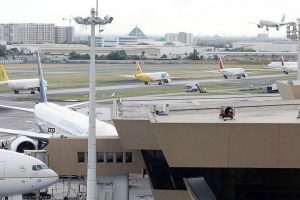THE PHILIPPINES had some of the most restrictive regulations for trade in services in 2024, particularly in terms of barriers to foreign investment, the Organisation for Economic Cooperation and Development (OECD) said.
The Philippines’ performance in the 2024 OECD Services Trade Restrictiveness Index (STRI), which grades conditions for the services trade across 51 countries and 22 industries, was “above the OECD average and relatively high compared to all countries in the STRI sample.”
In the report, the Philippine score was 0.45 with one being the most restrictive. It was deemed more restrictive than Russia (0.38), Indonesia (0.37), Iceland (0.35), Vietnam (0.34) and Kazakhstan (0.31). The OECD average is 0.19.
“The relatively high average score is explained by the presence of barriers to foreign investment across a number of sectors, including professional services, construction services and distribution services. In addition, economy-wide barriers that affect all services sectors are predominant,” it said.
The OECD study also cited restrictions on foreigners acquiring and using real estate, localization requirements for foreign services, and the application of labor market tests to certain categories of services suppliers.
However, it noted a “progressive effort towards creating a supportive regulatory environment for services trade.”
“Compared to regional partners, the Philippines has a relatively open market for trade in some key transport and logistics services, as well as financial services and some services that underpin the digital economy,” it said.
It added that the barriers in professional services remain above the regional average and could be potential areas for reform.
The report concluded that air transport was least restrictive industry in the Philippines relative to the region.
“Conversely, engineering services, rail freight transport, architecture services and logistics customs brokerage are the sectors with the highest relative score,” it said.
It noted that the Philippines has carried out crucial reforms opening up the air transport, telecommunications, and financial services industries.
Among the reforms is the Public Service Act, which eliminated foreign equity limitations on key public services, including airports, railways, and telecommunications services. — Aubrey Rose A. Inosante
